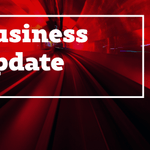Could you spot an AI generated CV?
The launch of advanced natural language processing models (NLP) such as ChatGPT and the ease at which they can be accessed and used is one of the most significant technology advancements in recent times. In fact, ChatGPT is now one of the top 20 used websites in the world as millions of people recognise the productivity gains it delivers.
Unsurprisingly, it’s not just businesses that have been quick to realise the advantages AI offers. Candidates and job seekers, understanding the time-saving benefits AI offers, are increasingly using them to craft CVs and hone cover letters. Just do a Google search and you’ll be amazed by the number of AI CV building tools out there capable of producing highly professional and convincing CVs with a human touch.
Currently 62% of respondents to a recent survey said they had and would continue to use it. However, the reality is that the number of candidates using these tools will only increase, and by their very nature, AI CV builders will become more sophisticated, producing ever more human-like CVs that perfectly match job adverts. This presents a real challenge for organisations and hiring managers - how do you adapt your current recruitment processes to spot AI generated CVs?
What is ChatGPT and how does it work?
Firstly, it is important to understand how these models work. Chat GPT and other NLP models are trained on a vast amount of diverse text data from the internet, allowing it to understand and generate coherent and contextually relevant responses in natural language.
Continually learning and updating, they use algorithms to analyse huge amounts of data quickly to produce human-like responses. At a very simple level, this means that a candidate could easily upload a job advert they intend to apply for, their LinkedIn profile and their existing CV to produce a CV tailored to that job spec that uses their data and information.
How candidates are using AI and ChatGPT to support their applications
CVs are quite uniform in their structure. Most follow a tried and tested framework and using ChatGPT or other AI tools to help you structure your CV really does help speed up what can sometimes feel like a daunting task.
Using ChatGPT or other AI tools to refine personal statements or find more concise ways of positioning your achievements is common. But the key here is refinement, ensuring that your CV reflects and helps promote you as an individual and importantly your skills, experience, and key achievements – particularly when applying for tech roles. The challenge comes from when you receive a CV that is clearly AI generated as it can raise questions about a candidate’s integrity.
How to spot an AI generated CV
The red flags
With AI becoming ever more sophisticated, spotting a fully generated CV or application will undoubtedly become more challenging, but according to Hughes there are some obvious red flags.
Generic content
AI generated CVs tend to rely on frequently used sentences and often lack real depth. So, for example, achievements written using AI may sound great but lack any real context or examples. They also tend to lack any real personalisation.
Odd sentence structure or inconsistent language
Inconsistent use of language and syntax issues are probably one of the major red flags and easiest to spot. This could include the overuse of elaborate words and sentences that don’t flow (or make sense) or using words in an incorrect context.
Inconsistent structure or flow
CVs and applications should flow, guiding the hiring manager logically through a candidate’s achievements and highlighting skills. AI generated CVs and applications can sometimes jump around, presenting information in an illogical flow – ultimately not making much sense.
How can organisations get on the front foot of this recruitment trend?
The number of candidates using AI to generate CVs or enhance CVs is only going to increase and for organisations hiring directly, this presents a very real challenge in both time and resource.
With potentially more candidates making it through the initial CV screening stages, talent acquisition or in-house recruitment teams will need to spend more time on pre-screening calls and activities before presenting shortlists to hiring managers. As well as heavier workloads, another biproduct of this is longer recruitment processes and the increased risk of losing candidates along the way. And let’s face it, with talent still hard to come by, this is not a desirable outcome.
Skipping this step is not an option either as it will only result in hiring managers interviewing more candidates, taking them out of the business for longer periods of time, interview fatigue and a greater risk of them going outside of internal processes due to the quality and quantity of candidates.
Silver lining
This is where partnering with external recruitment agencies has advantages. They already have a ‘screened’ candidate talent pool, built up over many years of nurturing relationships. This means they can quickly find candidates with the right skills and cultural fit. As Hughes points out, “It’s not uncommon for us to present shortlists back to clients in 48 hours.”
Moreover, engaging with a recruitment agency means that they have accountability for all pre-screening activities. As an example, at Harvey Nash we interview all candidates, providing that checkpoint to really assess their skills and fit for the role and the business.
This is a really a key advantage of working with external recruiters – providing that verification, drilling down into experience to ensure credibility before presenting a shortlist to the hiring manager. It also provides us with an opportunity to spot candidates that would be a perfect match for a role and company but who may not impactfully represent themselves and be overlooked in any screening process.
AI generated CVs is a recruitment trend here to stay
Like all technology, AI generated CVs are here to stay, and they will only grow in adoption and sophistication. Upskilling recruitment teams on how to spot AI or ChatGPT generated CVs is the first step. Beyond that, looking at how you can adapt and evolve your recruitment processes including the technology such as AI content detectors to support screening is essential to staying ahead of the game.
About the author
Rhodri Hughes is the Director of Harvey Nash’s Financial Services Practice. Working with his team he provides support and expertise across an extensive portfolio of trusted clients, including; but not limited to Investment Banks, Retail Banks, Investment Managers, Consultancies, Asset Managers, Proprietary Trading houses, Brokerages, Fin Techs, Insurance firms and more, covering a wide range of roles including technology, change and transformation, risk, compliance as well non-tech roles.
To find out how Harvey Nash can support you with your recruitment needs please click here.





